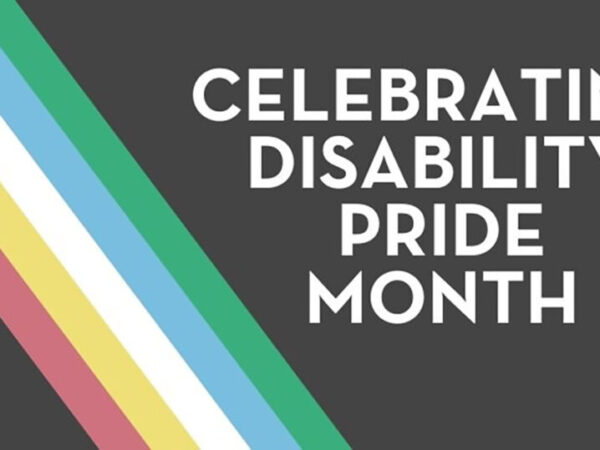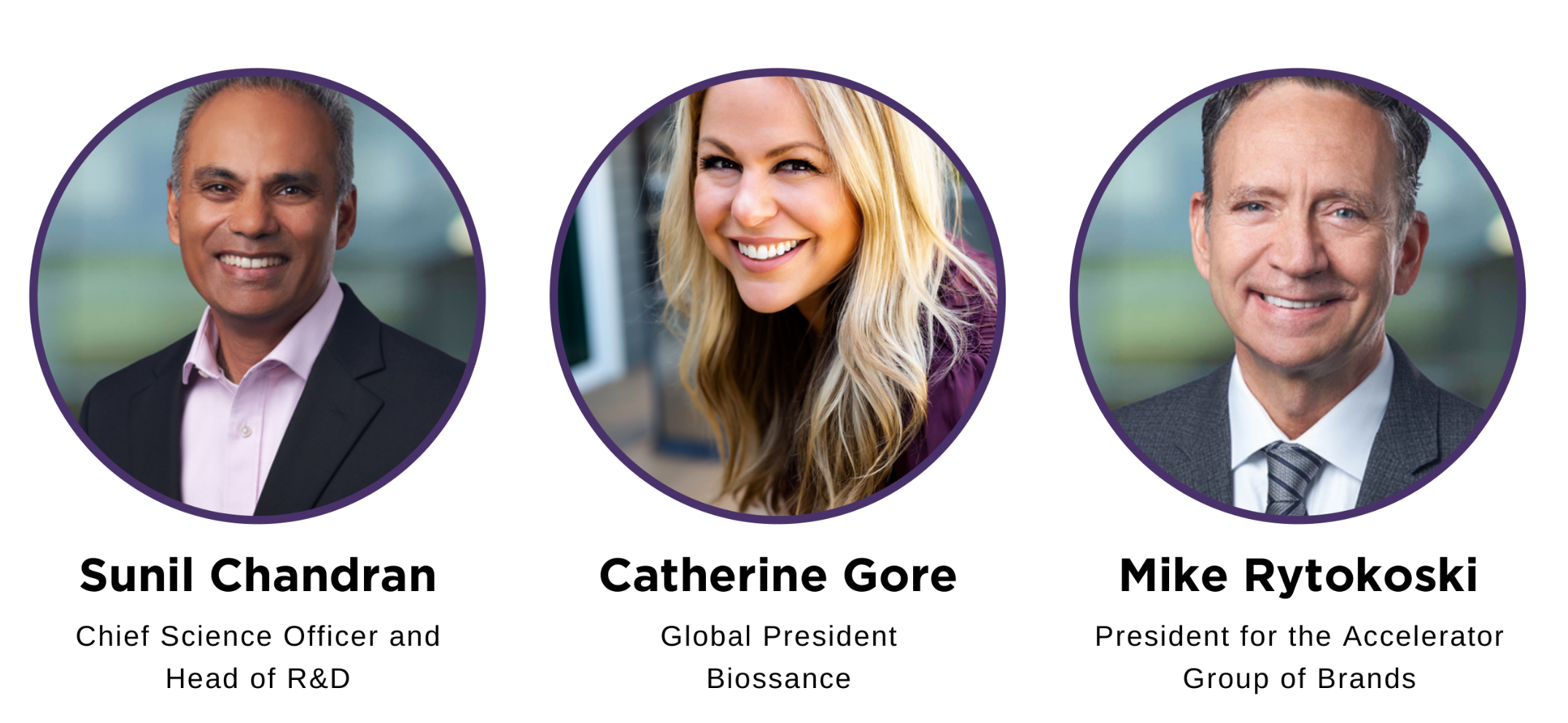
Disability Pride Month: Removing Barriers and Amplifying Voices
learn more
Three Amyris executives joined a fireside chat with our partners at Modern Health—a mental well-being platform offering therapy, coaching, and self-guided courses – to discuss the importance of mental health and wellness.

May is Mental Health Awareness Month and at Amyris we encourage employees to take a proactive approach to practicing self-care and prioritizing mental health through a variety of employee-sponsored benefits and offerings. Recently Sunil Chandran, Chief Science Officer and Head of R&D; Catherine Gore, President of Biossance; and Mike Rytokoski, President, Consumer Accelerator shared their personal experiences and mental health journeys with Amyrisians during a virtual fireside chat.
Highlights from their conversation:
Q: We must build resiliency through our own practices for ourselves, our own mental well-being, and for our physical well-being. How do you build resiliency? By having habits in both your personal lives but also your professional life.
Mike: I make it a priority to take care of both my mental and physical health because I believe that both of those form the foundation for high performance. I consciously try to do more things that make me happy. I also consciously try to avoid things that don’t make me happy. It starts from awareness and understanding what makes you tick and what works best for you. The second part is taking care of my physical health. I have a very disciplined approach to staying fit. I have my OKRs for being fit and that really helps me.
Catherine: There’s a quote from Brené Brown that I think is very fitting here, which is that the core of mental toughness is self-compassion. I think that people who practice and exercise self-compassion also can be mentally fit. This has taken me a long time to figure out by the way, because I’m a self-proclaimed self-critic. It starts with how we speak to ourselves and really caring. Speaking to ourselves as if you would talk to a best friend, with compassion and empathy and not allowing that self-criticism to creep in as much. For me it starts there.
I also just try and pause. There’s a lot of magic in pausing. Just pause and recognize the way that you’re treating your own self or pushing your own self or criticizing and stop that cycle of going down that rabbit hole of second guessing or shame.
Q: How do you personally deal with times of uncertainty?
Sunil: There’s a big assumption being made that I know how to deal with uncertainty the “right way,” and that I have this all figured out, but I want to dispel that. I actually don’t! I get stressed out just like everyone else. I’ve struggled with mental health just like everyone else. I’m not an expert, but there are certain things I do which seem to work for me.
In R&D we have this concept that biology is unpredictable science. You can only control your own actions and how you approach the problem. You can’t assume that just because you act a certain way, everything else will happen exactly the way it’s supposed to. There are uncertainties out there. Most of them will be outside your control and that’s OK. The question is how you approach them.
This has taken me a long time to figure out, but I can’t worry about everything that’s possibly wrong. I’ve chosen to focus on what I can control and my priorities in life, which are my family, then work.
Something I can control is when I check and respond to email. In the early days of Amyris, when we were a startup, we were always on the go, and I got into this habit of checking e-mail at 10:00 p.m. right before going to bed. If there was an email from my boss or someone else, I convinced myself that I just had to respond, because that’s how I would progress in my career: Respond to an email at 10:00 p.m. and everyone knows I’m still working. It’s the most ridiculous concept! Finally, one day I realized I should be spending time with my family—or getting rest—rather than responding to an e-mail that can easily wait.
Q: What can leaders do to support their employees’ mental health?
Mike: I think the most important thing you can do is simply to ask, “How can I help?” Be sensitive. Instead of saying, “Hey, how are you doing,” genuinely care about the person. You need to genuinely care about people and their well-being and then ask if there’s something you can do to help.
Sunil: I agree. Listen. Be curious. Make the person aware that they don’t have to do this alone. They have a team that they can lean on as much as they need to. Some people are not comfortable leaning on a team, and that’s OK. But listen, be curious, and just offer support. That support could be, “Hey, I’m here if you need me. Your team is here if you need us.” Make sure they understand they’re being heard.
Q: If you could leave us with a final statement about mental health, what would that be?
Sunil: You are it for you, for yourself and your family. There’s no backup plan, so focus on yourself. Take care of yourself. There are plenty of people who will help you across the organization.
Catherine: Life comes with pain and adversity—that’s part of the human experience: we will encounter adverse situations. These milestones can be a rite of passage. But don’t wait for them to happen—put yourself first no matter what. Make sure you find and give yourself the tools to heal, because we only have one life. Life is short.
Mike: I agree. It’s your life, try to take charge as much as you can. Do things that make you happy and take care of yourself. Take care of others. And when you do that then, you will be successful in everything you do.